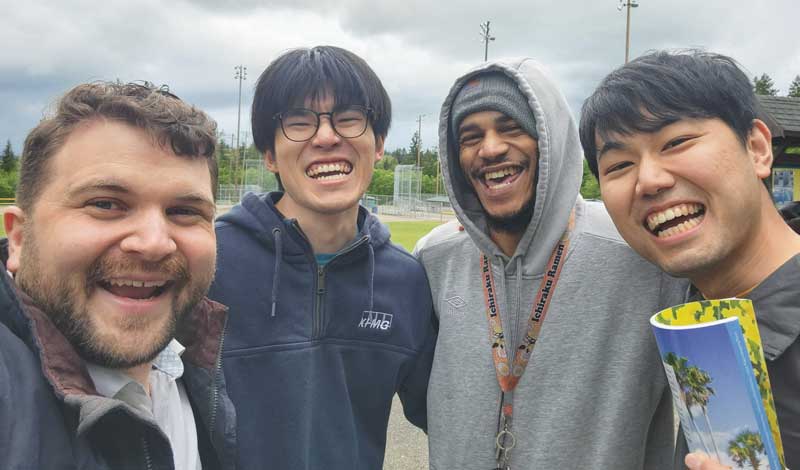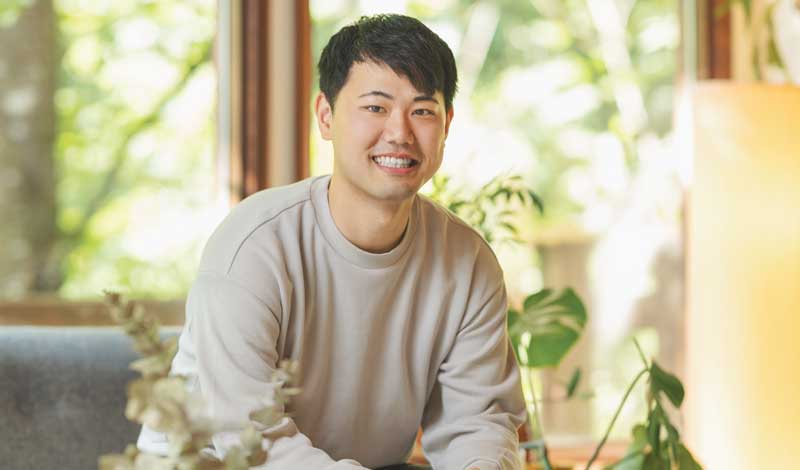by Eiji Toda
Portland, Oregon
Knowing the stakes, my young men’s leader flew in for the weekend—the last of March of this year—to make a cause with me for victory. Idling outside the terminal, anxious on the eve of what I could only hope would be victory, I hailed him over to my car.
The year before, I’d received my master’s from Portland State University along with a student work permit. From there I’d landed a job in urban planning, my field of choice, and within a year was sponsored for a work visa. But sponsorship was only a first step and meant only that I could apply to enter the visa lottery, the results of which would be announced the last day of the following March. The months seemed to shrink with the passage of time, while the approaching date loomed larger. Now that date was tomorrow, and had grown in my mind into an ominous, towering thing.
At the suggestion of my young men’s leader, we’d booked the weekend to visit local young men’s division members. Whatever tomorrow brought, I was still, today, the young men’s leader of the Pacific Northwest. Our divisional conference was slated for winter at the Florida Nature and Culture Center, and I’d registered to go. This meant, of course, that I meant to win my visa. Now, we set out to encourage others to win too. “I’m going!” I told them. “Are you coming with me?”
Despite our best efforts, by day’s end, just one of the guys had registered for the conference. Deflating behind the wheel on our way back to the airport, I couldn’t help but apologize—my young men’s leader had flown out here and was leaving without having done what we’d set out to do.
“You kidding?” he said. “I came to see you, man!”
As we neared a red light, he added brightly, “I got something for you,” and riffled through his backpack, producing a leaf-print bookmark he’d brought back, he said, from a recent SGI training course in Japan. “Honestly though,” he laughed “I don’t know what it says.”
At the light, I glanced down. Engraved on the bookmark, gold Chinese characters read: “Employ the strategy of the Lotus Sutra before any other” (“The Strategy of the Lotus Sutra,” The Writings of Nichiren Daishonin, vol. 1, p. 1001). For whatever reason, waiting at the light, these famous words of the Daishonin landed home as they never had before. That night, I chanted with conviction. Everything will be OK. No matter what, I’ll fulfill my vow. Tomorrow, I’d know the results of the lottery.
I woke anxious. Resisting the urge to check emails, I sat in front of the Gohonzon and chanted.
Arriving at work, I opened my email and found a message from my company’s HR: I’d been granted my visa. Of course, the greatest celebrations were with my brothers in faith—in Oregon one weekend, in Seattle the next.
While in Seattle, I went together with them to visit a friend of ours we’d heard was struggling. In fact, we found him feeling hopeless. No one, he said, could understand his struggles. We were at a loss for words. But then it occurred to me that I might understand, just enough. “Could we read something?” I asked and opened that month’s Living Buddhism to Ikeda Sensei’s guidance on continuing faith.
“The Mystic Law’s fundamental beneficial power is inconspicuous. When you pray for something, even though signs of your prayers being fulfilled may not be immediately apparent”—here, our friend’s voice broke, and he began to cry. “This is how I feel,” he said. Then he gathered himself and read on. “Though signs of your prayers being fulfilled may not be immediately apparent, the result will definitely appear in time” (May 2025 Living Buddhism, p. 4).
“Every morning for the past six months,” I told him, “I’ve woken up afraid. It was only a month ago that I got an answer to my prayers. But the key to overcoming fear has been chanting abundantly every morning.” Would he join me? The next morning, he texted all of us, saying he’d just finished morning gongyo and felt joy for the first time in weeks.
This is why I went through what I did, I thought. My certainty, however, was short-lived.

The next day, I received an email from my attorney with vague, troubling news. There’d been some filing error on the part of my attorney who, after some prodding, admitted I was now ineligible to work for the next four months.
It was my HR department who explained that last bit. Did I want to speak with my attorney? they wanted to know. No, I did not.
I was bitter but didn’t see the value in airing that out. From where I stood, I was completely protected. My company offered not only to reserve project work for me when I returned in October but also to pay me half my lost wages.
Chanting about the matter, however, I grew slowly indignant. I was protected, but the mistakes of the law firm were being borne by my employer. Considering things further, I thought of those who might not be so fortunate, for whom such errors might spell disaster.
“Actually,” I told HR, “I would like to talk.”
Sitting across from my attorney, I began with praise for the incredible work she does, and she responded earnestly.
The oversight had proven an opportunity to tighten procedures, and she shared her own resolve for this never to happen again. The dialogue opened onto personal philosophies, and I shared with her my greatest source of strength—my Buddhist practice. Not long after this, the law firm offered to cover the entirety of my lost wages. Truly, I feel I turned poison into medicine.
October’s nearing now, and I can’t wait to get back to work. In the meantime, I’m fighting with deep appreciation for this unprecedented opportunity to advance kosen-rufu with total freedom alongside my brothers in faith. As for the FNCC conference in October—I will of course be going, and with friends. One by one, I’m calling out to them: “I’m going! Are you coming with me?” And one by one, with conviction, they’re committing—for kosen-rufu, for victory.
You are reading {{ meterCount }} of {{ meterMax }} free premium articles

